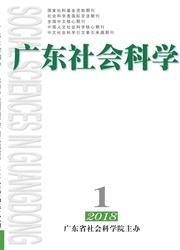

 中文摘要:
中文摘要:
当前外国直接投资(FDI)在中国经济活动中发挥重要作用,同时中国国有企业股份制改革正在深化,日益增长的劳动力成本也成为中国目前的一大现实。本文基于当前中国经济现实,构建开放经济下的混合寡占模型,深入系统地研究了国有企业股份制改革与劳动力成本上升对FDI的影响机理。理论分析结果表明:(1)国有企业股份制改革不但可以提高社会福利水平,而且有利于吸引更多的FDI,但劳动力成本和劳动力效率对FDI并无显著影响;(2)在国有企业股份制改革程度确定的情况下,劳动力成本上升对国有企业的影响要大于对外资企业的影响。
 英文摘要:
英文摘要:
The foreign direct investment( FDI) plays an important role in China's economy at present. At the same time,Chinese joint-stock reform of state-owned enterprises( SOEs) is deepening and the labor cost is increasing. Based on the current economic reality of China,this paper studies the impact of SOEs reform and labor cost increase on FDI by constructing mixed oligopoly model in open economy. Theoretical analysis results show that: 1) the SOEs reform can not only improve the level of social welfare,but also to attract more FDI,but labour cost has no significant effect on FDI; 2) the negative influence from the labor costs on SOEs is greater than the impact on enterprises with foreign capital.
 同期刊论文项目
同期刊论文项目
 同项目期刊论文
同项目期刊论文
 期刊信息
期刊信息
